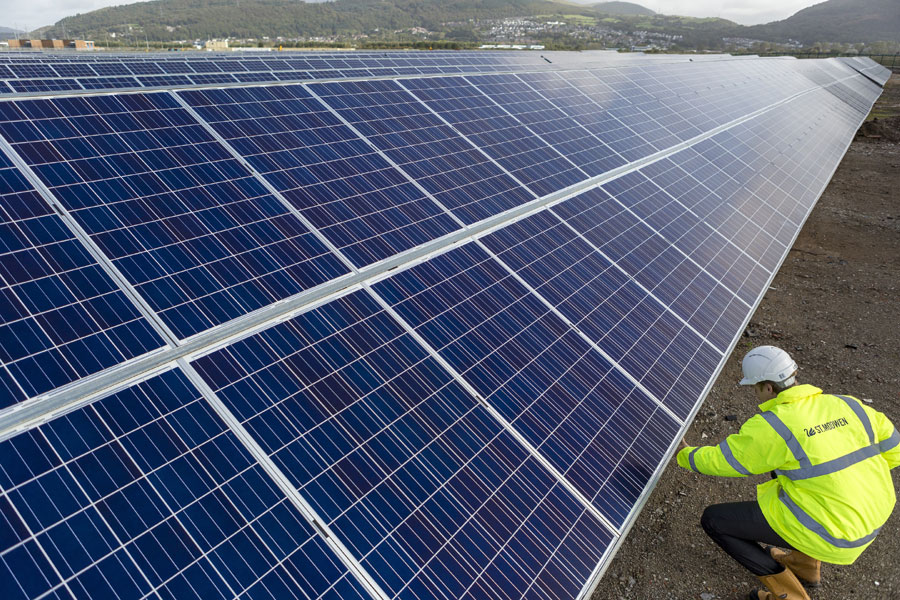Works on the largest photovoltaic park on a brownfield site in Wales is close to completion, according to the UK’s leading regeneration specialist, St. Modwen. The £15m solar energy project based at the 1,050 acre Baglan Bay site in Port Talbot will house 20,000 photovoltaic panels, enough to provide electricity for over 1,200 homes per year in Wales.
Rupert Joseland, St. Modwen’s South Wales and South West Regional Director, said: “Baglan Bay is a major regeneration project to transform over 4.0 million sq ft of disused brownfield land into a new employment site with the potential to create thousands of jobs locally and this photovoltaic park marks another important step forward in our redevelopment plans for the site.
“Baglan Bay provides all the right conditions for a photovoltaic park, from good exposure to sunlight, ideal coastal climate for cooling panels and located in an area that does not impact the public.
“By early next year we will be in a position to connect these solar cell panels to the national grid and start producing renewable energy clean of emissions for residential and commercial developments across South Wales for years to come.”
This photovoltaic park is part of St. Modwen’s £3 billion comprehensive regeneration strategy across South Wales. This comprises a portfolio of 3,500 acres that includes a fully remediated linked development of three former BP sites located in Neath Port Talbot and Swansea. The sites will be transformed over the next 20 years to provide new housing, employment and education opportunities:
* Housing – the 1,060 acre former Llandarcy oil refinery which St. Modwen is currently transforming into the £1.2 billion Coed Darcy community with 4,000 homes.
* Employment – the 1,050 acre Baglan Bay, a former Petrochemicals site which is earmarked to provide over 4 million sq ft of employment space, as well as some residential units, located on the fringes of the site outside the former operational area.
* Education – The Bay Campus, which is being developed in partnership with Swansea University as its second campus aiming to grow the knowledge economy and create a major catalyst for the local economy. The campus will focus on STEM students (being Science, Technology, Engineering and Maths). The University will provide academic, student accommodation and research space, the latter being in a series of agreements with international and national companies.



















